 April 2018 in “The journal of investigative dermatology/Journal of investigative dermatology”
April 2018 in “The journal of investigative dermatology/Journal of investigative dermatology” Researchers found a new way to isolate sweat glands from the scalp for study and culture.
 April 2018 in “Journal of Investigative Dermatology”
April 2018 in “Journal of Investigative Dermatology” The keratin network in mouse skin changes during cornification and affects the skin's protective barrier.
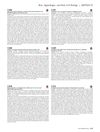 April 2018 in “The journal of investigative dermatology/Journal of investigative dermatology”
April 2018 in “The journal of investigative dermatology/Journal of investigative dermatology” GATA6 is important for maintaining and differentiating cells in a key area of human skin.
[object Object]  April 2018 in “Journal of Investigative Dermatology”
April 2018 in “Journal of Investigative Dermatology” People with alopecia areata have higher levels of a heart disease marker in their blood.
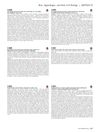 April 2018 in “Journal of Investigative Dermatology”
April 2018 in “Journal of Investigative Dermatology” Light can activate hair growth through a pathway from the eyes to hair follicles.
 February 2018 in “Trends in Immunology”
February 2018 in “Trends in Immunology” Skin bacteria can help wound healing by activating certain immune cells.
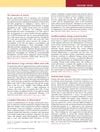 August 2017 in “Journal of Investigative Dermatology”
August 2017 in “Journal of Investigative Dermatology” Activin increases skin tumor formation, skin Tregs help hair growth, lymph-node removal doesn't improve melanoma survival, cells can revert to stem cells in wound healing, and skin bacteria produce peptides that may treat infections.
 April 2016 in “Journal of Investigative Dermatology”
April 2016 in “Journal of Investigative Dermatology” Retinoids change the fat content in skin oil and reduce bacteria growth, helping to treat acne.
 July 2022 in “The journal of investigative dermatology/Journal of investigative dermatology”
July 2022 in “The journal of investigative dermatology/Journal of investigative dermatology” MPZL3 protein helps keep sebaceous gland size and cell growth in check.
 June 2024 in “Journal of Allergy and Clinical Immunology”
June 2024 in “Journal of Allergy and Clinical Immunology” TSLP affects atopic dermatitis by increasing sebum and reducing fat through IL-4/IL-13 signaling.
[object Object] January 2023 in “Indian Dermatology Online Journal” Two newborns with rare skin infections were successfully treated with antifungal cream.
April 2019 in “The journal of investigative dermatology/Journal of investigative dermatology” A compromised gut may trigger the autoimmune hair loss condition Alopecia Areata.
40 citations,
September 2019 in “World journal of clinical cases” An elderly man's hair grew back after a treatment that transferred healthy gut bacteria.
 36 citations,
March 1987 in “Pediatrics”
36 citations,
March 1987 in “Pediatrics” Minoxidil use during pregnancy can cause excessive hair growth and multiple birth defects in the baby.
 6 citations,
May 2022 in “Colloids and Surfaces B: Biointerfaces”
6 citations,
May 2022 in “Colloids and Surfaces B: Biointerfaces” Eating peptides from certain shellfish may help wounds heal faster by reducing inflammation.
4 citations,
November 1970 in “PubMed” Mustard oil and unsaturated fatty acids can stop the growth of scalp fungus and prevent it from infecting hair.
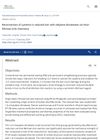 January 2024 in “International Journal of Cosmetic Science”
January 2024 in “International Journal of Cosmetic Science” A new method using 1,4-n-butylene dimaleate effectively repairs and strengthens damaged hair.
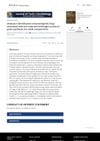 November 2023 in “Journal of Basic Microbiology”
November 2023 in “Journal of Basic Microbiology” Green-synthesized zinc oxide nanoparticles effectively inhibit common fungi found on human scalp hair.

Seborrheic dermatitis and dandruff are often treated with antifungal and anti-inflammatory medications, which can reduce symptoms and yeast growth on the scalp.
December 2020 in “The journal of investigative dermatology/Journal of investigative dermatology” Papulopustular rosacea is an inflammatory skin condition treatable with lifestyle changes and medications.
 4 citations,
March 2023 in “Journal of medical case reports”
4 citations,
March 2023 in “Journal of medical case reports” Taking too much vitamin E caused a young man's blood clotting problems, which improved after he stopped the vitamin E and got treatment.
 3 citations,
January 2021 in “Journal of Research in Medical Sciences”
3 citations,
January 2021 in “Journal of Research in Medical Sciences” Certain medications can impact metabolic syndrome, with some improving conditions like high blood sugar and others having no effect.
 August 2024 in “International Journal of Research in Dermatology”
August 2024 in “International Journal of Research in Dermatology” Indulekha Svetakutaja Hair Oil effectively reduces dandruff and improves scalp health.

Low vitamin D3 and ferritin levels may cause hair loss in pregnant women.
 February 2024 in “Skin health and disease”
February 2024 in “Skin health and disease” Exosomes could improve skin and hair treatments but are limited by cost, production difficulty, and need for more research.
May 2023 in “Journal of Drugs in Dermatology” REVIVV® serum improves hair growth and reduces shedding in androgenetic alopecia.




















